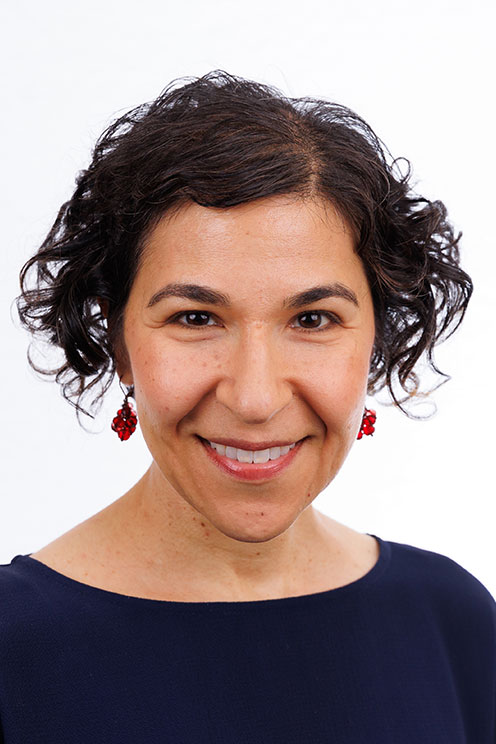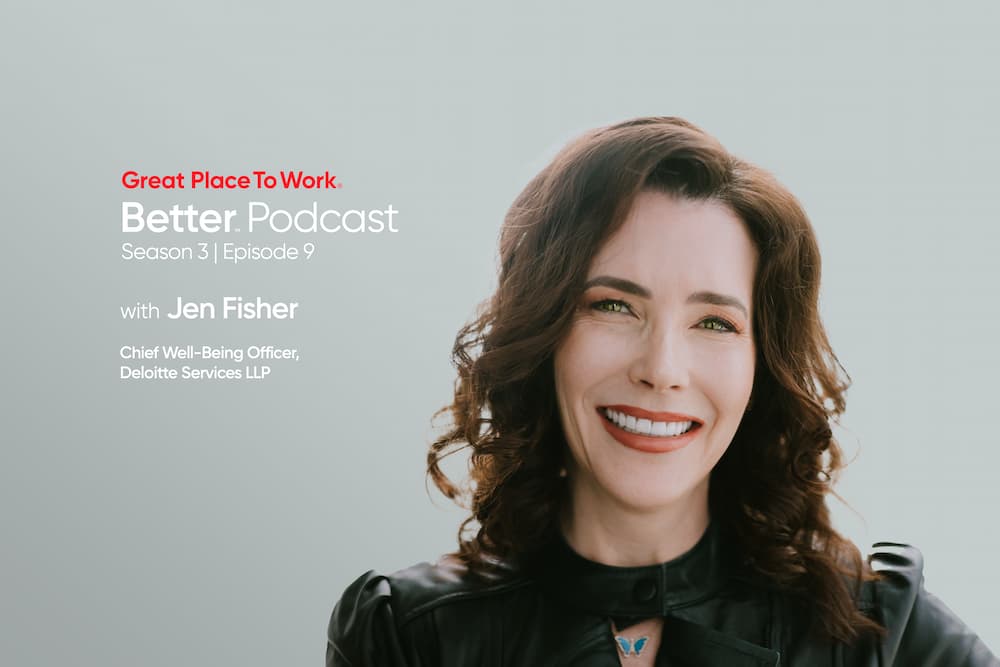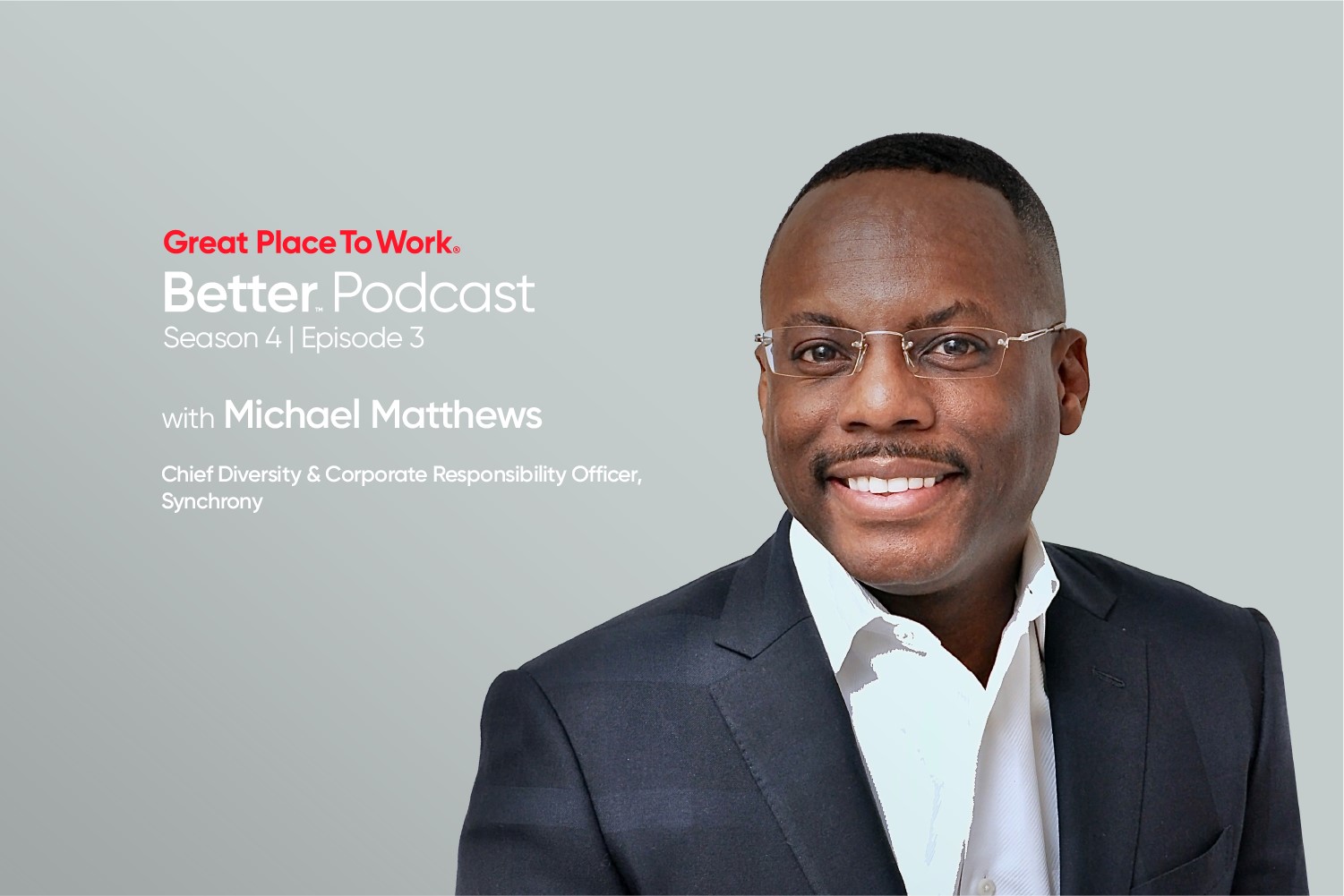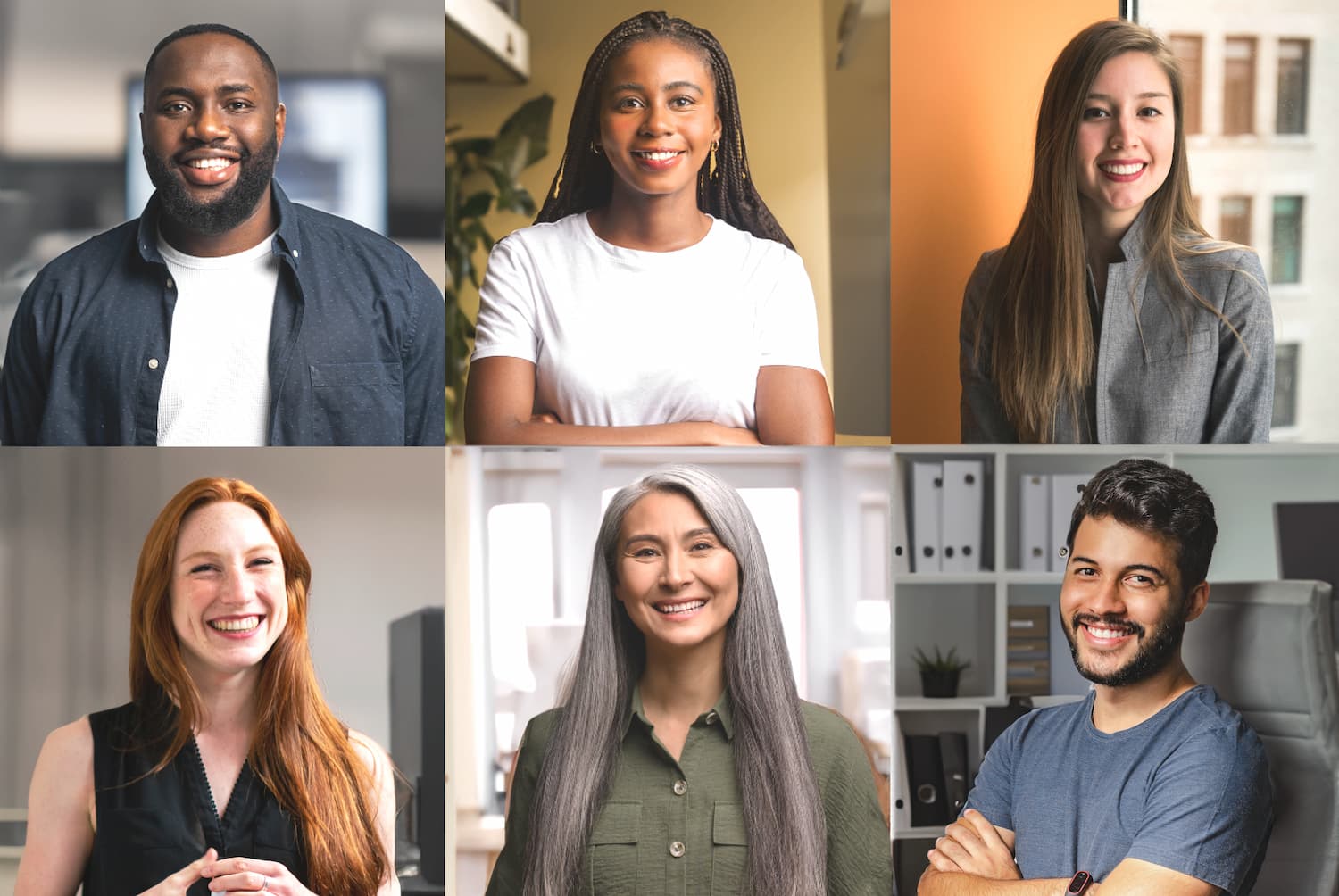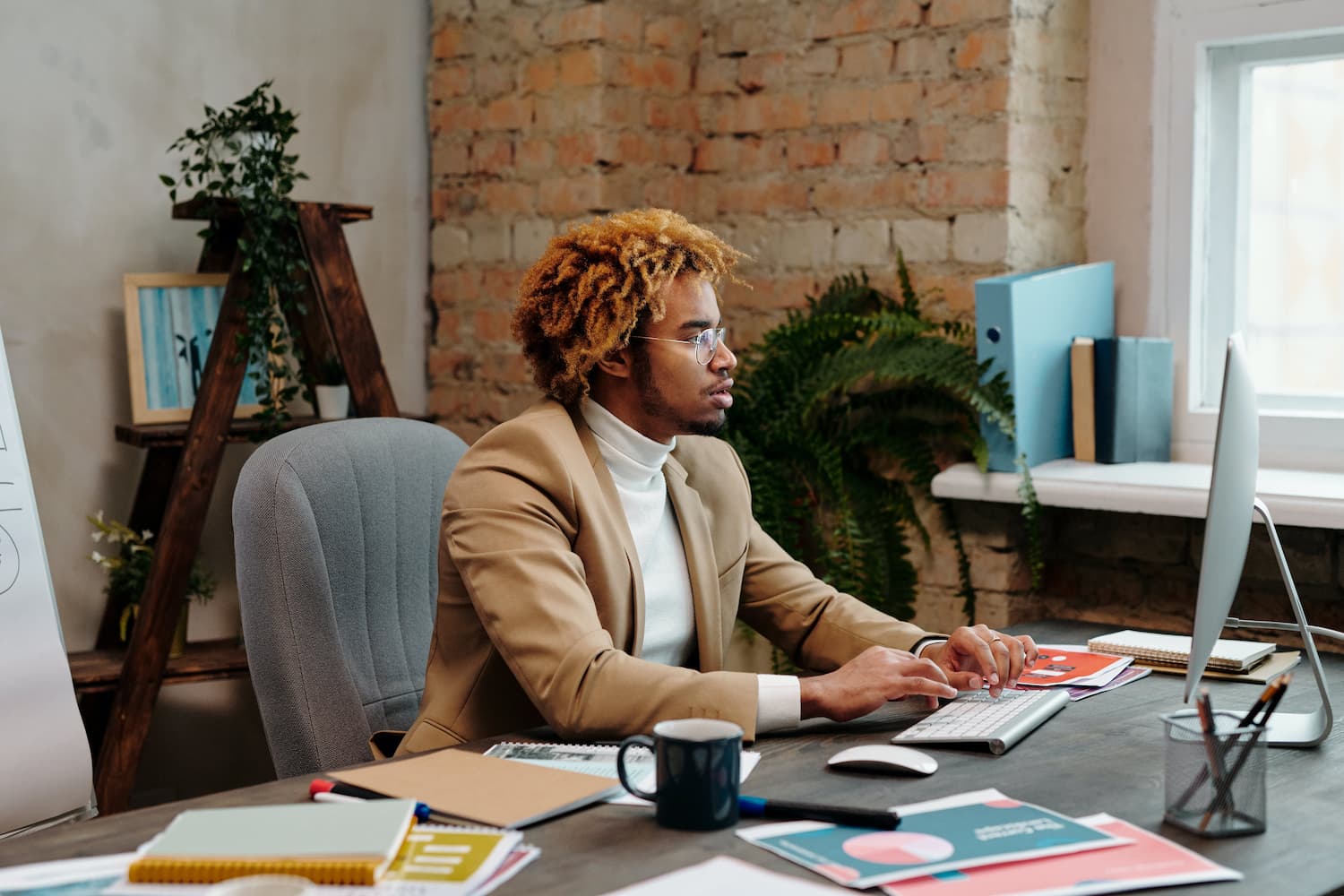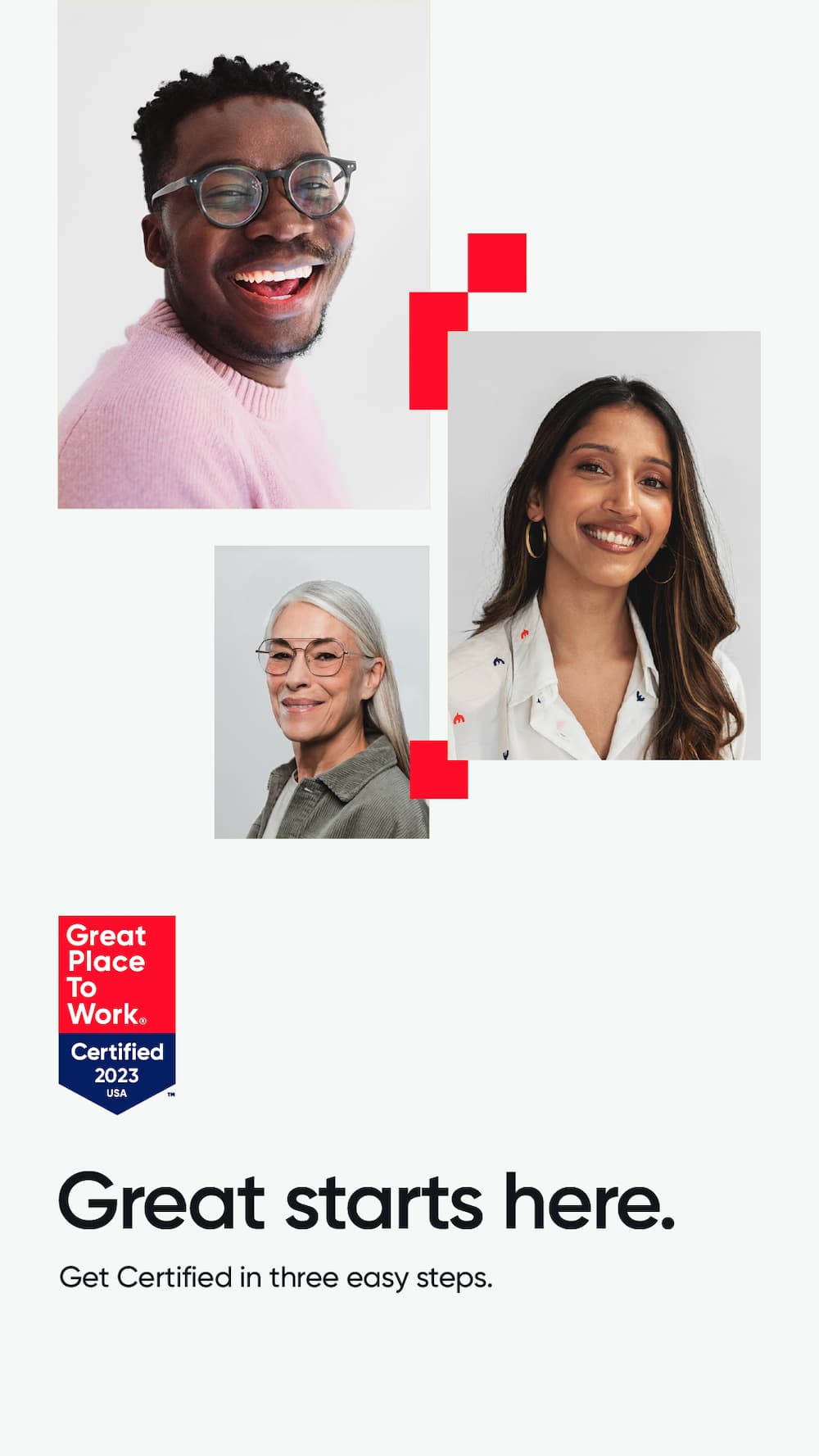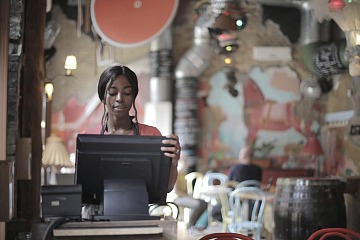Best Workplaces, Burnout, Employee Experience, Employee Well-being
“If you employ human beings, you have to care for their well-being. It's not a nice to have, it’s not a good to have, it's nonnegotiable. It is a baseline requirement for today's workforce.”
On this episode of the Better podcast, Jen Fisher, chief well-being officer at Deloitte, shares her burnout experience, signs she ignored, and the impact workplace friendships and in-person connection have on our mental health, productivity, and retention.
She talks about the No. 1 thing you should do before starting any well-being program, and how to combat loneliness some remote workers might experience.
On her experience with burnout:
I processed many of the symptoms of employee burnout as failure. I had the mindset of, “I'm just going to push through. I'll rest on the weekend. I'll take a vacation when the project's over. Then things will get better ‘when.’”
I had not been engaging in work or life and in any meaningful way. I didn't have any motivation. I was exhausted all the time. My emotions were all over the place, either really high or really low.
My personal relationships suffered. I didn't make time for them. I didn't value or prioritize them the way that I should.
So my body and brain said, “Okay, you're not going to do something about it, so we're going to make it so bad for you that you have no choice.” And that's really what happened. I was forced to take a step back and take time off from work, and address burnout and the struggles that I was having with my mental health.
That personal journey and personal discovery led me down the path of saying, “I want to help others not get to where I got.”
On where to start when creating wellness programs:
The No. 1 and lowest cost thing that you can do — because there's no cost to it other than engaging with people and getting a little bit of their time — is asking your workforce, “Hey, what do you want? What do you need? What would be meaningful? What are the barriers in the way of you doing these things for yourself, or taking advantage of the things that the organization is providing you?”
As leaders, understanding what those barriers are, you can then decide if that’s a barrier you can remove. And if you can't, are there ways around it? Are there things you can do to overcome it?
It's really powerful to engage your workforce in this type of conversation, because even if you don't do exactly what they ask you to do, the simple fact that you asked them what they thought and what they needed goes a long way.
On the challenges of remote work on our mental health:
I personally believe that there is, and will always be, a need for human beings to come together in the workplace, in person, in real life. We need to engage in conversation and work and fun — and all of those things in the workplace— with other human beings in real life. Then when we're remote, we then have a stronger connection with those people.
People go to the office to have their human needs met, and the biggest of those human needs is human connection. Can it be done in a digital environment? It can, but it can be accelerated and done better when there is also in-person time.
I'm not going to prescribe what that looks like for every organization, but with remote work, there are positives and negatives. We know that fully remote work has exacerbated the loneliness crisis. Digital connection is connection, but it's not human connection.
On the importance of friendships at work:
Unfortunately, the research shows that many people don't have a friend at work, but for those who do, they're more likely to stay with an organization. They're more engaged, their work product is better, because we are meant to connect with other human beings.
It's a sense of belonging. If I connect with another human being, I feel like I belong at the organization, and that's what we all want. We all want to know that we belong somewhere. We want to know that we're accepted. We want to know that we're seen.
And that's why you need to have at least a couple of friends at work. You don't have to like everyone, but you need a few friends.
Listen to all episodes
Subscribe to Better wherever podcasts are available so you don't miss an episode of season three.
Roula Amire:
Welcome to Better, by Great Place to Work, the global authority on workplace culture. I'm your host, Roula Amire, content director at Great Place to Work.
On this episode, I speak with Jen Fisher, Chief Wellbeing Officer at Deloitte. Jen tells us her burnout story, the signs she ignored, and she dives into questions you should ask your people today so you don't miss early signs of burnout.
The question today for you listener is do you have a work best friend? I really hope your answer is yes and you have a go-to person at work. We talked about why friendships are so important to our mental health, and the effect they have on productivity and retention. Are you standing, Jen?
Jen Fisher:
I am standing, yeah.
Roula Amire:
Do you prefer it?
Jen Fisher:
I really like this, I don't even have a chair in my office anymore. I got rid of the chair completely.
Roula Amire:
Because you never use it. Do you remember a few years ago where there was all the hubloo on the dangers of sitting?
Jen Fisher:
Yeah, sitting's the new smoking, yeah.
Roula Amire:
Yes. I'm like, oh my gosh. Got to keep it moving. I got to do my meditation. There's so many things.
Jen Fisher:
All the things, yes.
Roula Amire:
So let's talk about the things. Welcome to the podcast, Jen. I've been looking forward to having you on to talk about wellbeing and mental health, because it's not only what you focus on at Deloitte as Chief Wellbeing Officer, but I know it's something extremely personal to you.
To start us off, for our listeners who may not know your story, take us back to the day or morning when you said, I can't do this anymore. I'm burnt out. What was your job at the time, and what happened to you that day or in the weeks or months proceeding that day?
Jen Fisher:
Yeah, absolutely. It's a really good question. People often ask me, what does burnout look like? Or what are the signs or what are the symptoms? And to be honest with you, I think that I knew. Well, I did know that there was something wrong with me, but I did not ask for help.
I did not really even admit it to myself or others, because in my mind, asking for help or admitting that I couldn't keep up in the world that I was living and working in meant that there was something wrong with me or that I was a failure. So I processed many of the symptoms of burnout as failure, and so I had the mindset of, well, I'm just going to push through. I'm going to power through. I'll rest on the weekend, or I'll take a vacation when the project's over. Or things will get better when, that mindset of, I'll do all of these things in the future, but right now I'm going to dig in.
And I guess you could say when never came, or maybe when did come. Because I woke up one morning, and I was alive and I could get out of bed and feed myself breakfast and things like that, but I really could not and had not been engaging in work or life and in any meaningful way. I didn't have any motivation. I was exhausted all the time. My emotions were all over the place, either really high or really low.
My personal relationships had suffered. I didn't make time for them. I didn't value them or prioritize them in the way that I should. And certainly my work had suffered, and people at work noticed and would reach out. I had several people reach out and ask me if everything was okay. Obviously I had my spouse, my husband, but nobody ever listens to their spouse, so he couldn't have possibly understood what was going on.
So my body and brain said, okay, you're not going to do something about it, so we're going to make it so bad for you that you have no choice. And that's really what happened. I was forced to take a step back and take time off from work, and address burnout and address the struggles that I was having with my mental health. And that was really hard for me, because I grew up an athlete. I played soccer.
I prided myself on the fact that no matter what else was going on in my life or at work, that I got to the gym for an hour a day. And that was my definition of wellbeing. It didn't matter if I slept two hours or three hours, or didn't do anything else for myself. I got to the gym for an hour a day.
So I think that was a big reckoning and a realization, that real holistic health and wellbeing is far more than just your physical health or getting to the gym an hour a day. As a matter of fact, some days it means not going to gym.
And so that personal journey and personal discovery really led me down the path of saying, wow, I want to help others not get to where I got. Because we shouldn't have to get to where I got, we shouldn't have to feel like we can't ask for help or that there aren't others that would be willing to help us. And there are resources available in most organizations that can help us.
And so I really wanted to take that on and help other people. Ariana Huffington says that burnout shouldn't be the price that we pay for success. And that's absolutely true. It has become a bit of my mantra as well. And so long story short, I actually went to my leader and mentor, and I thought that I was going to have to resign from working at Deloitte because we didn't have somebody in the role that I currently have.
We have great programs, tools, resources, all the things we do to care for our people and provide for them, but I didn't have the vision of like, oh, this could actually be a role or a thing. And it was my mentor who said, "Well, you're not going anywhere. You're going to stay right here, because if you need this, there's a whole bunch of other people that need it too."
And it was more her vision in many ways to send me down the path of starting to develop a business case of what wellbeing at Deloitte truly looks like and truly means. And that was nine years ago. And Deloitte just continues to impress me in terms of the commitments that we've made to really understand and care for our people, and that these are real issues.
And if you employ human beings, you have to care for their wellbeing. It's not a nice to have. It's not a good to have. It's a non-negotiable. It is a baseline requirement for today's workforce, and probably always should have been.
Roula Amire:
But in the past, it was that mentality of we're just going to power through.
Jen Fisher:
Yeah, or that work is work and life is life, and you deal with all of those things outside of work. Well, now we're in this space for many people where work and life are integrated or even sitting on top of each other. And so you can't really separate the person from the work. And we shouldn't, because human beings don't work that way. It's not natural to think that way.
And I think that it in many ways maybe led to where we are now, is that understanding that human beings don't split themselves in half. We don't show up for work one way, even though we try, and show up at home another way. That's not healthy.
Roula Amire:
I think even trying, if someone thinks they have to try, that's a sign, that's a yellow flag. Ding, ding, ding, something's not quite right. So since your position's been created, and of course after the pandemic, the focus on wellbeing is part of our mainstream awareness now.
The surgeon general last year, I think it was for the first time, put out a report on the impact of the workplace on our health. For better, for worse, and that toxic workplaces are hazardous to our health. The impact of bad sleep, chronic stress, long hours, everything you described, that can lead to real physical problems, like heart disease and depression. So the need for wellbeing support is undeniable, always has been. But now it's more top of mind.
Jen Fisher:
We have the data, we have a lot more data now to show that that's real.
Roula Amire:
Exactly, which is great, but you can't create wellbeing programs if you don't have the culture to support them. So there's a business case for it, for sure. But if you can't take advantage of wellness programs at your company, what is the point? So for companies who want to support their people, what programs help them succeed and what should they avoid?
Jen Fisher:
Yeah, it's a great question, and a little bit of a loaded question, I think. So I think what we're seeing now is that there are many companies that do want to support their workforce, and they are investing in wellness programs with the best of intentions. And then people aren't taking advantage of the programs.
And so they're throwing their hands up and saying, well, we invested in it and people aren't interested. And so my answer to that, and I know when we talk with clients and others at Deloitte, it's not that the people aren't interested in it, it's usually that there's something underlying in the culture. There's some reason that people don't feel permissioned to take advantage of it.
And so I think the first step, even before investing in these types of programs, is to look at longstanding cultural norms that may have made a lot of sense when they became norms.
And in terms of our behaviors and how we do work and how we engage with one another, culture is made up of the behaviors of the people that work within that organization. And many norms are perceived, many of them are real, but that's usually is what is keeping people from taking advantage of the things that companies provide to them. And so what could that look like?
I think the number one and lowest cost thing that you can do, because there's no cost to it other than engaging with people and getting a little bit of their time, is asking your workforce, Hey, what do you want? What do you need? What would be meaningful? What are the barriers in the way of you doing these things for yourself, or taking advantage of the things that the organization is providing you? And so as leaders, understanding what those barriers are, you can then decide, well, is that a barrier we can remove?
And if we can't, are there ways around it? Are there things that we can do to overcome it? But it's really powerful to engage your workforce in this type of conversation, because even if you don't do exactly what they ask for you to do, the simple fact that you asked them what they thought and what they needed goes a really long way.
And so I think a lot of times leaders are like, well, what if I ask and then I can't do what they ask me? And I'm like, well, that's okay. You can just explain to them why that's not something that you can do right now, and continue to keep that two-way dialogue open.
And so it really is about communication and relationships before you start to invest in these programs to make sure that people feel empowered and permission to take advantage of them, and the best way to do that is to have those conversations.
Roula Amire:
I love that answer. It's just by the sheer gesture of asking, even just like, how are you doing really? How are you? And that can open a conversation, that is wellness and care. You don't always need a 10 step wellness initiative. You can just check in like you do with people outside of work, ask them how they're doing.
Jen Fisher:
And that even works, we're talking about at the company level. That even works very well and very powerfully at the team level. You can have those same conversations with your team, what does everybody need? How can we support one another? What do we want our team behaviors and norms to look like?
And people are like, okay, well, what are team behaviors and norms? Things like what are our standard working hours? Especially if we're not co-located and we're working across time zones, what can we expect from one another? And how do we get in touch with each other outside of those "standard working hours"? Because if you leave it up to email, that's what actually keeps people connected to email.
Because of the fear of missing out. FOMO is very real. Email has created that for us. Thank you, email. But even having those conversations clear, Brene Brown says, clear is kind. So clear is kind about expectations around work and how we work together. And that can be done at an organizational level and at a team level in very powerful ways.
Roula Amire:
Let's talk a little bit about remote work. So many people are quick to tout remote work as the [inaudible 00:13:43] for burnout culture, but there are real challenges that come with remote work. Yes, remote workers, the research shows have a better work-life balance, but it can be lonely. And loneliness can affect your engagement, productivity, happiness.
There's an epidemic of loneliness in this country. Depending on the study you read, at least half of Americans are lonely. And it has the same risk as smoking for heart disease. I had to double check the stat, and you probably know this, Jen, loneliness is as lethal as smoking 15 cigarettes a day.
So any tips on how companies can counter the remote induced loneliness, whether that's day-to-day through a virtual connections or occasionally throughout the year, bringing your people together in person?
Jen Fisher:
Yeah, I personally believe, and we're seeing lots of swings, and whether it's everybody's going back to the office, no one's going to the office or somewhere in between, four day work week. There's all this stuff wrapped up I think in this reaction or potentially overreaction.
I think it's all good, because it's showing that companies are trying to figure this out. I personally believe that there is and will always be a need for human beings to come together in the workplace, in person, in real life. We need to engage in conversation and work and fun, and all of those things in the workplace with other human beings in real life. And the reason for that is because when we're remote, we then have a stronger connection with those people. We've connected on a higher level, if you will.
We know a little bit about who they are. And can you accomplish that in fully remote? Yes, you can. And there's great examples of that, but it's a lot harder. And human beings, we're born for connection. That's just in our DNA, it's who we are. And technology. It's interesting, because I wrote a book with a co-author at Deloitte, Anh Phillips, called work better together, and we started writing the book pre-pandemic.
And the premise of the book is really in many ways how technology has impacted our ability to develop deep and meaningful relationships. And so we started writing the book a couple of months before the pandemic hit. And then the pandemic hit, and the only thing that most of us had to keep us connected to other human beings was our technology. And so we were like, okay, what do you do now? But at the moment, it was like, uh oh, what do we do now?
But it was a great reckoning, to say there is definitely a time and place for technology and there's a time and place for in-person real human connection. I think that what people go to the office for is changing and needs to change.
And so people go to the office to have their human needs met, and one of those human needs, the biggest of those human needs is human connection. It's also how we learn on the job. That's really important. And can it be done in a digital environment? It can, but it can be accelerated and done better when there is also in-person time.
And so I'm not going to prescribe what that looks like for every organization, but remote work, there's positives and there's negatives. But we do know that fully remote work has exacerbated the loneliness crisis. I think that the surgeon general came out yesterday or earlier this week and actually said that it's a public health epidemic. It's a real issue. And digital connection is connection, but it's not human connection.
That's the best way I can describe it. And so it is connection. It's not not connection, but it's not human connection.
Roula Amire:
When I started at Great Place to Work, it's my first fully remote job last January. I love the role, I love my boss, I love the company and the mission. I'm engaged. But something felt missing, and it was that social connection. So for me, I joined a coworking space and that gave me what I was looking for, just what you're saying.
I've heard you talk about the serendipitous moments that happen in person that are missing in the virtual world, and that's what I found there. I just needed to see humans, chit-chat, like that water cooler talk.
Jen Fisher:
At Deloitte, we call those the moments that matter. And so we encourage our teams and our team leaders to come together at those moments that matter. And that looks different for every team throughout the firm. And so we really empower our people and our team leaders to make those decisions for themselves based on the type of work they're doing, project milestones, things like that, but recognizing that it is incredibly valuable to us as individual human beings, but also to the talent experience.
Roula Amire:
In that same vein, let's talk about the importance of friendship at work and how that can help our mental health.
According to Gallup, only two in 10 people feel like they have a best friend at work. Again, there's so many stats, but that's one of them, which is pretty dismal. And those who do, they tend to stay longer at their companies, they perform better. Why is that? Why is it so important to have that go-to person at work?
Jen Fisher:
Because we spend a huge percentage of our waking hours either at work or working, whether it's at a physical location or remote, and we just got done saying how important human connection is. And so if you spend a huge portion of your time at work and working, feeling isolated or feeling that you don't have that one go-to person, that you can just be like, oh my gosh, can you believe this happened?
Or, what do you think about this? Or How would you present this? Or what do you know about this? And we talk about this in the book work better together too. There's different types of relationships at work, and some of them are friendships and some of them are for utility. And not everybody has to be your best friend at work. And that's okay. We can treat each other with respect as human beings.
But it is really, really important, I think, to find that 1, 2, 3 people that are just your people. That when you need something, when you need to vent, when you're having a moment, when you need some advice, when you need somebody to listen to you rehearse, that's going to understand what you're saying. We can all rehearse things with our friends and family, but they might not understand the context or the culture.
And so I think that it's really, really important. And all of the research shows, like you said, unfortunately the research shows that many people don't have a friend at work, but for those that do, their level of engagement, their level of happiness, they're more likely to stay with an organization. They're more engaged, their work product is better, because we are meant to connect with other human beings.
It's a sense of belonging. If I connect with another human being, I feel like I belong at the organization on that team. And that's what we all want. We all want to know that we belong somewhere. We want to know that we're accepted. We want to know that we're seen. And so that's why you need to have at least a couple of friends at work. You don't have to like everyone, but you need a few friends.
Roula Amire:
And that supersedes where you work. This goes beyond remote in office or anything.
Jen Fisher:
Absolutely.
Roula Amire:
Do you have a work best friend?
Jen Fisher:
Yeah, I think I have a few work best friends, definitely. I've been at Deloitte for 22 years, so I actually have a lot of friends at work. And I will tell you, people are like, wow, you've been at Deloitte for 22 years. That's a really long time. What keeps you there? It's the people.
Deloitte is like any other company. It's an organization made up of people, and it's the people that keep you there, just like all the other relationships in our life.
Roula Amire:
Switching gears, the next few questions are to help our listeners get to know you a little bit better. I've been looking admiringly at your books behind you. For our listeners, Jen has a colorful assortment of books in a gorgeous bookcase on the wall. So is there a book or a podcast or both that you'd recommend to your peers to check out and why?
Jen Fisher:
Well, okay, can I be self-serving here? Of course, work better together that Anh Phillips and I wrote, and I am the host of a podcast, it's Work Well by Deloitte, where I get the great honor to interview amazing guests to talk about all things while being at work.
So check those two out, but without being self-serving, gosh, so many great books. This is why I'm surrounded by books, because I don't know, I can't pick one. But I would say the one that, if I had to, you're forcing me to.
Roula Amire:
Also, I'm just curious, when do you have time? When do you read?
Jen Fisher:
Okay. So Edith Eger wrote, she's written a couple books, but the book the choice is a book that has had a significant impact on me. And it's all about, she's a Holocaust survivor. And so she talks about her experience in the Holocaust and what they all went through, what she went through, and how we all have a choice to respond. And how we respond in our own mind to all of the stressors and all of the things that are going on in our external lives, but reminding us that no matter what other people are doing to us, we still have a choice in how we react and how we respond.
And quite frankly, that's the only thing we can control. Because we can't control anyone else. But her story's incredibly powerful, and it's just one of those books that is always somewhere around me and is nicely worn and dogeared and highlighted. And when I'm having those anxious moments where I just need some inspiration, it's the one that I go to and pick up.
Let me see, when do I have time to read? Well, I'm a book nerd, I'm an introvert, and I spend much of my working days talking with other people. And so reading for me is one of my recovery strategies. And so I'm never just reading one book. I'm always reading, juggling a stack of books. And so I read whenever I get a chance, I'll pick up a book. And even if it's just to read a few pages, I try to read before bed at night, or journal before bed at night just to get myself into a mode where sleep comes easy and my mind is as clear as it can be.
Although that's easier some days than others. And you asked about podcasts. I'm actually not a huge podcast listener. I dabble in and out of them, and maybe it's because I have my own podcast, but Hidden Brain is a great podcast. This is a great podcast. I'm speaking on it. So everybody should listen to this podcast on a regular basis.
Roula Amire:
Along those lines, you mentioned winding down at the end of the day, making time to read. You're naturally an introvert and you have to extend a lot of yourself during the day. So then when you're not working, there's some quiet time. What else do you do to keep a sense of wellbeing for yourself?
Jen Fisher:
Exercise for me. Exercise, sleep. Eat, move, sleep, find joy is Jen's framework for wellbeing. And so I'm not a perfect eater by any stretch of the imagination, but I do try to fuel my body with some nutritious food every day and make time for that. I really try not to stand in front of my laptop or sit in front of my laptop and shovel the food into my mouth, but really take those moments to step away from work or whatever it is I'm doing and enjoy the food. Or just enjoy that moment away from the digital technologies that rule our life.
Movement and exercise are really, really important to me. Fortunately, I have a Jack Russell Terrier who is very active and loves to go on walks, and so that's not something that I can say no to because she's got to go for walks.
But exercise is also really important to me because I do live with anxiety, and exercise and sleep are the two primary ways that help me manage that on a day in day out basis.
And then finding joy. If you ever get an email from me or exchange emails, you'll notice that my signature sign off says find joy. Because I think it's really easy in this world that we live in, there's so much uncertainty and so much change and so much that's going on. And the 24-hour news cycle of bad news doesn't help, but there's still a lot of things great that are going on in the world and there's a lot of really good people. And so I try to seek out those news stories, and if all else fails, I go on YouTube and watch videos of cute puppies. And that brings me joy.
Roula Amire:
I love the device. I love what you said about mindful eating. That's something I've tried to implement this year. I learned that it's not just the act of eating, but how we're eating and stepping away from the laptop so your brain knows is time for rest, not a time for fight or flight. So I think that's great.
Jen Fisher:
And it's great just in terms of slowing your eating down so that your brain and your stomach have a chance to communicate with one another.
Roula Amire:
Right, there's that gut brain...
Jen Fisher:
Connection.
Roula Amire:
Yeah, is that the vagus nerve?
Jen Fisher:
Yeah.
Roula Amire:
I'm scratching my brain.
I had a deep dive in that one. I also, my body gave me signals to change some things up, so I had to be more mindful in my life and that was a game changer. So those are some of the changes I've also had to make. What is the best piece of career advice you'd go back and give your younger self, younger Jen, what would you tell her?
Jen Fisher:
Oh, that's a great question. Probably nothing is ever as bad as you think it is, and nothing is ever as good as you think it is. But to stay the middle of the road and do your best, and let things play out. And probably believe more in myself and ask for help, I think that that is really, really important.
We started the podcast where I talked about my fear of asking for help and how that would be perceived, and so I think especially in those moments of struggle, ask for help, but asking for help is a sign of strength, not a sign of weakness.
Roula Amire:
I agree, I agree. I also had to learn that one the hard way, but sometimes there's no other way to learn things. You just have to go through it. Yep. Thank you, Jen. Thanks for joining us today on the podcast. I really enjoyed the conversation.
Jen Fisher:
Me too, thanks for having me. It was a great conversation.
Roula Amire:
Thanks for listening. If you enjoyed today's podcast, please leave a five star rating, write a review, and subscribe so you don't miss an episode. You can stream this and previous episodes wherever podcasts are available.
